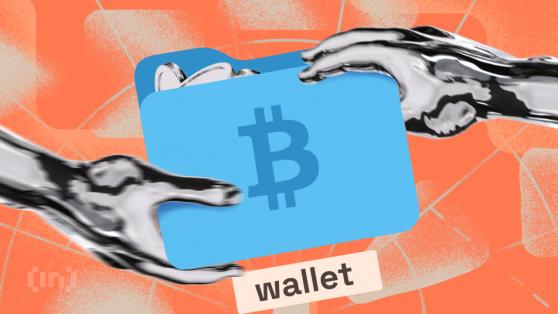BeInCrypto - Crypto hardware wallets are often touted as the most secure means of storage. These physical devices, designed to protect digital assets from online threats, have been the go-to for crypto investors seeking safety for their investments.
They offer the allure of cold storage, where private keys – the cryptographic proof of ownership – are held offline, rendering them impervious to cyber-attacks. Still, recent revelations challenge the invulnerability of these “impregnable fortresses.”
Unveiling the Vulnerabilities of Crypto Hardware Wallets
Contrary to popular belief, hardware wallets are not infallible. They have exhibited vulnerabilities that attackers could exploit, putting investors’ funds at risk. Even the most sophisticated hardware wallets can be compromised by hackers through various means.
One significant vulnerability stems from the very process of manufacturing the wallets.
Ledger’s Nano X, a popular hardware wallet, had a supply chain vulnerability. It could allow rogue actors to tamper with the device during production. This enabled them to steal the user’s private keys when generated.
Another security issue lies in the recovery seed phrases – a series of words that can restore access to digital assets in case of a wallet loss or damage.
The crypto community has heavily criticized Ledger’s controversial feature that allows cloud backup of seed phrases. The feature, designed for convenience, compromises security by storing seed phrases in a less secure environment where unauthorized parties could access them.
Further, Ledger exposed a striking instance of crypto hardware wallet vulnerability when it identified potential security issues in its competitors’ wallets. Side-channel attacks pose a risk to Trezor’s wallets. This could allow an attacker to guess the PIN by monitoring power consumption patterns during the PIN entry process.
Although Trezor responded by pointing out that an attacker would need physical access to the wallet, this episode highlights that even the best hardware wallets may not be entirely secure against all forms of attacks.
Top Security Threats for Hardware Wallets
The top five security threats for hardware wallets are supply chain attacks, evil maid attacks, side-channel attacks, $5 wrench attacks, and phishing attacks.
Supply chain attacks have already been discussed, but the other four are equally significant. An evil maid attack occurs when an attacker with physical access to a wallet installs malicious software on it. As mentioned earlier, side-channel attacks exploit power consumption patterns to decode PINs.
The $5 wrench attack is a euphemism for physical coercion or threats to force a user to reveal their PIN or seed phrase. Lastly, phishing attacks trick users into divulging their credentials.
Given the vulnerabilities and threats outlined above, it is evident that hardware wallets, while offering a higher degree of security than their software counterparts, may not be as private and secure as they claim.
In all aspects of cybersecurity, the weakest link in the chain determines a hardware wallet’s security.
While crypto hardware wallets take steps to protect against online threats, they cannot fully guard against physical threats or human error. They provide a robust line of defense but not an unassailable one.
Users must be aware of these vulnerabilities and take additional security measures to protect their digital assets.
The Importance of Vigilance and Extra Security Measures
Despite the vulnerabilities, hardware wallets remain among the safest cryptocurrency storage options. They provide a significant barrier to many common types of attacks. However, this does not eliminate the need for vigilance and additional security measures.
Users cannot overstress the importance of securing their recovery phrases and PINs. Ideally, they should store these securely, offline and keep them out of potential attackers’ reach.
Moreover, users should be cautious about phishing attempts and ensure they interact only with legitimate platforms and services.
Number of Crypto Users Worldwide. Source: Statista
Manufacturers also have a pivotal role in ensuring the security of hardware wallets. They must adopt rigorous security protocols, conduct thorough testing, and be transparent about potential vulnerabilities.
In addition, manufacturers should provide clear instructions to users on how to safely use and store their wallets and update their devices regularly to patch any potential security flaws.
Ultimately, the decision to use a hardware wallet should be an informed one. Potential users should be aware of the vulnerabilities and the steps they can take to mitigate them. Although no storage method is completely foolproof, crypto hardware wallets can offer a high level of security for digital assets when used correctly.
The quest for secure cryptocurrency storage is a continuing journey, not a destination. As the technology behind cryptocurrencies continues to evolve, so will the methods for storing and securing them. As users, staying informed and vigilant is the best defense against potential threats to our digital assets.
For BeInCrypto’s latest crypto market analysis, click here
